Discover the joys and challenges of overnight backpacking for beginners. This popular outdoor activity allows you to immerse yourself in nature while testing your physical and mental limits.
Learn the basics of backpacking, from choosing the right gear to navigating trails and setting up camp. Overnight backpacking is fun, learn more.
Here are 10 tips for beginners planning an overnight backpacking trip:
- Start with Shorter Trips: For your first overnight backpacking experience, choose a relatively short and easy trail. This will help you get used to carrying a heavy pack and camping in the wilderness without being too far from civilization.
- Plan and Research: Research your chosen trail thoroughly. Know the distance, terrain, weather conditions, and any regulations that may apply. Familiarize yourself with the area on maps and guidebooks.
- Pack Light: Minimize the weight of your backpack by packing only essential gear and clothing. Invest in lightweight and compact equipment to make your journey more comfortable.
- Test Your Gear: Before your trip, set up your tent, try on your backpack, and test all your equipment to ensure everything is in working order. This prevents last-minute surprises.
- Share Your Itinerary: Tell someone at home about your plans, including your route and expected return time. This is important for safety in case of emergencies.
- Dress in Layers: Be prepared for changing weather conditions. Dress in layers so you can adjust your clothing to stay comfortable throughout the day and night.
- Purify Water: Don’t assume water sources along the trail are safe to drink. Carry a water filter or purification tablets to ensure your drinking water is safe.
- Leave No Trace: Practice Leave No Trace principles by packing out all your trash, staying on designated trails, and respecting nature. Leave the wilderness as beautiful as you found it.
- Food Planning: Plan your meals and snacks carefully. Choose lightweight, easy-to-prepare, and nutritious food. Don’t forget a stove if you need to cook.
- Know Basic First Aid: Carry a basic first aid kit and know how to use it. Minor injuries can happen, so being prepared can make a big difference.
Contents
Overnight backpacking offers a unique opportunity to disconnect from the hustle and bustle of everyday life and reconnect with the natural world.
So, if you’re ready for an exciting adventure that will push you outside your comfort zone, join us as we delve into the world of overnight backpacking for beginners.
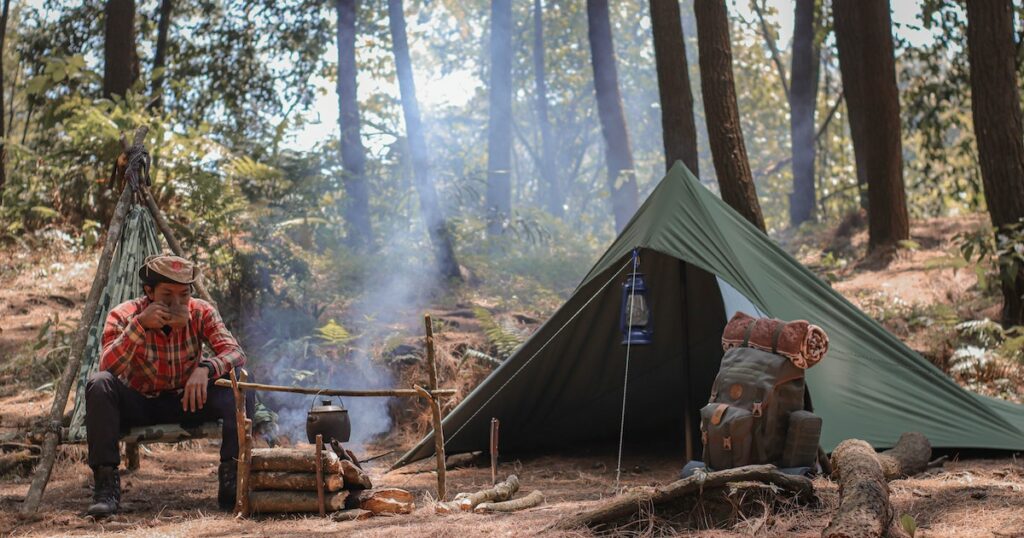
Overnight Backpacking for Beginners
To embark on a beginner backpacking trip, it’s crucial to have the right gear. Some essentials include a sturdy backpack, a comfortable sleeping bag, and a reliable tent.
Don’t forget to pack a sleeping pad for added comfort during those nights under the stars. Other items like a headlamp, water filter, and cooking equipment can also come in handy.
Efficient and Comfortable Packing
Learning how to pack your backpack efficiently is key to an enjoyable trip. Start by organizing your gear into categories such as clothing, food, and cooking supplies.
Place heavier items closer to your back for better balance and stability. Utilize compression sacks or stuff sacks to save space and keep things organized.
Food and Water Planning
Proper food and water planning is essential for any outdoor adventure. Plan your meals ahead of time, considering lightweight options that are easy to prepare on the trail.
Pack enough water or bring along a water filter to ensure you stay hydrated throughout your journey.
Essential Skills: Setting Up Camp and Navigating Trails
Setting up camp is an important skill every beginner should learn. Find a level spot away from hazards such as dead trees or rocky terrain.
Practice pitching your tent before heading out so you’re familiar with the process. Navigating trails is another vital skill for overnight backpacking trips.
Carry a map and compass (and know how to use them) or consider using GPS technology if available.
Remember that practice makes perfect! Start with shorter day hikes before venturing into multi-day trips.
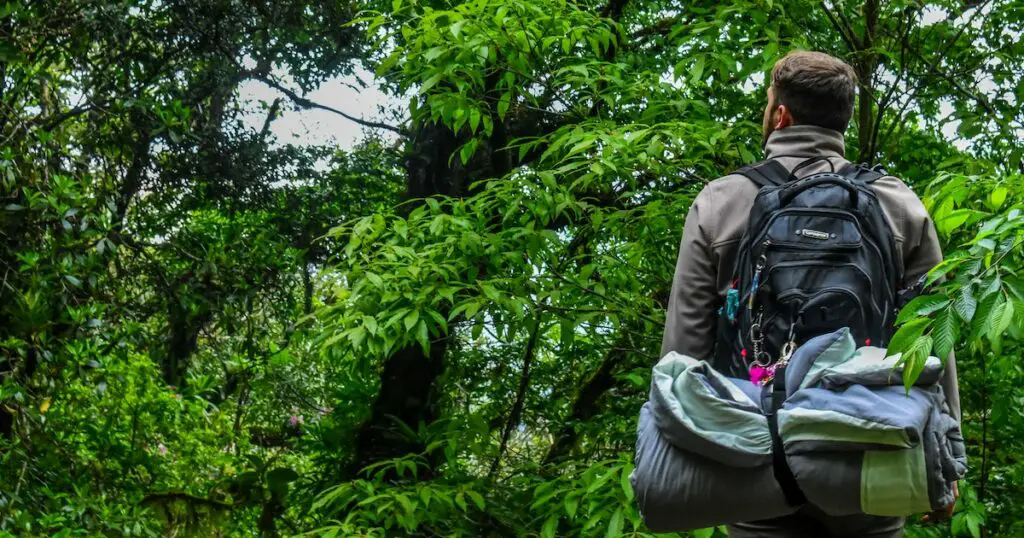
Important Tips for Beginner Backpackers
Stay safe by researching trail conditions and weather forecasts before embarking on your overnight backpacking adventure.
Knowing what to expect will help you prepare better and make informed decisions.
Look for reliable sources such as trail guides or websites that provide up-to-date information about the trails you plan to explore.
Be aware of any potential hazards, such as steep terrain or river crossings, so you can be prepared with the necessary gear and skills.
Practice Leave No Trace Principles
As a beginner backpacker, it’s essential to minimize your impact on the environment.
Follow the principles of Leave No Trace, which include packing out your trash, staying on designated trails, and respecting wildlife and vegetation.
By practicing these principles, you contribute to preserving the natural beauty of the wilderness for future generations to enjoy.
Take Care of Your Feet
Your feet are your most valuable asset when backpacking, so it’s crucial to take care of them properly.
Invest in proper footwear that provides support and protection against rough terrain. Break in your hiking boots before hitting the trail to prevent blisters and discomfort.
Use blister prevention techniques like wearing moisture-wicking socks and applying moleskin or tape to hot spots.
Taking care of your feet will ensure a more enjoyable experience on the trail.
Stay Hydrated and Nourished
During your overnight backpacking trip, it’s important to stay hydrated and nourished to maintain energy levels and avoid dehydration or fatigue.
Carry enough water with you or have a reliable water filtration system if there are water sources along the trail.
Pack lightweight but nutrient-rich snacks like nuts, dried fruits, or energy bars that provide sustained energy throughout the day.
Remember these tips as you embark on your overnight backpacking journey! They will help ensure a safer, more enjoyable experience while minimizing your impact on nature.
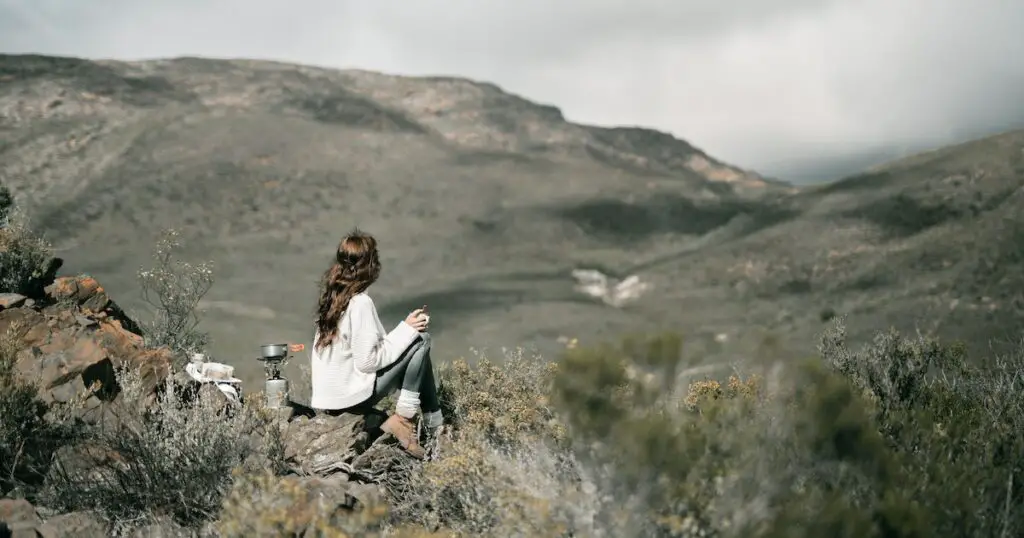
Choosing an Easy Backpacking Destination
When planning your first overnight backpacking trip, it’s important to choose a destination that is suitable for beginners.
Here are some tips to help you select the perfect backpacking destination:
Look for beginner-friendly trails
Search for trails that are specifically marked as beginner-friendly.
These trails usually have manageable distances and elevation gains, making them easier for beginners to navigate.
It’s important to start with a trail that matches your fitness level and hiking experience.
Consider factors like accessibility and scenery
When choosing a backpacking destination, consider factors such as accessibility and scenery.
Look for trails that are easily accessible from where you live or have convenient transportation options.
Choose a destination with beautiful scenery to enhance your overall experience.
Research permit requirements and restrictions
Before finalizing your backpacking destination, research any permit requirements or restrictions in the area you plan to visit.
Some wilderness areas require permits for overnight camping, so make sure you understand the rules and regulations beforehand.
Seek recommendations from experienced hikers
To get firsthand information about potential destinations, seek recommendations from experienced hikers or join online hiking communities.
They can provide valuable insights based on their personal experiences and help you find beginner-friendly backpacking destinations.
Choosing the right backpacking destination is crucial for an enjoyable and successful trip.
By considering factors like trail difficulty, accessibility, scenery, permit requirements, and seeking advice from experienced hikers.
You can ensure that your first overnight backpacking adventure is both safe and memorable.
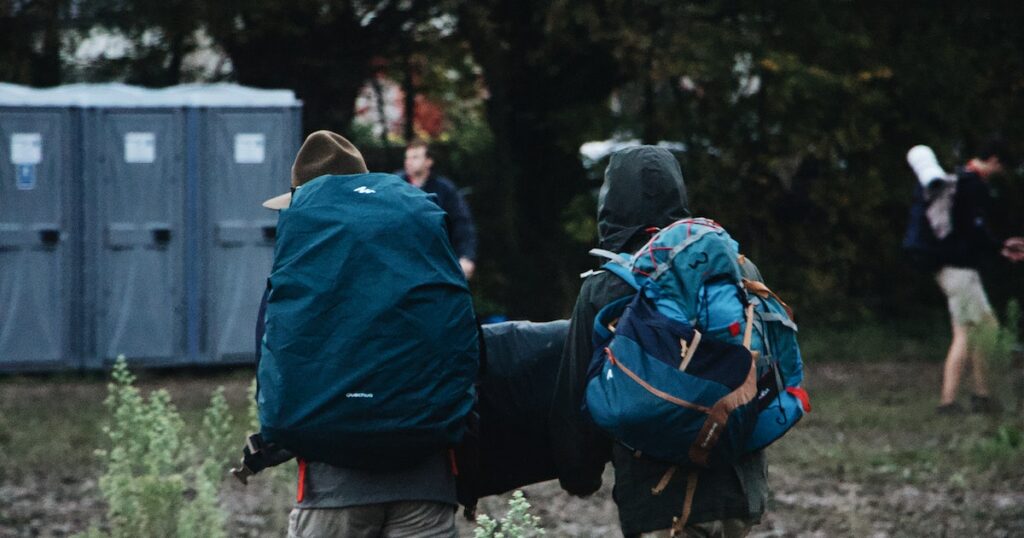
Avoiding Rookie Mistakes in Backpacking
When you’re embarking on an overnight backpacking trip, it’s crucial to prioritize lightweight essentials over unnecessary items.
Avoid the temptation to bring everything but the kitchen sink! Instead, focus on packing only what you truly need to have a safe and enjoyable experience.
- Pack lightweight clothing options that can be layered for warmth.
- Choose compact and lightweight camping gear.
- Opt for dehydrated meals or lightweight food options.
Test Your Gear Before Heading Out
There’s nothing worse than discovering issues with your gear while you’re out on the trail.
To avoid any surprises, take the time to test all your equipment before your backpacking adventure.
- Set up your tent in your backyard or living room to ensure it’s in good condition.
- Check that your sleeping bag is warm enough for the expected temperatures.
- Test your stove and cookware to ensure they are functioning properly.
Have a Reliable Navigation System
Getting lost in the wilderness can be scary and dangerous, especially if you’re a beginner. Make sure you have a reliable navigation system with you at all times.
- Carry a detailed map of the area you’ll be exploring.
- Use a GPS device or smartphone app that works offline.
- Learn how to read topographic maps and use a compass as backup.
Start with Shorter Trips
While it may be tempting to tackle long-distance hikes right from the start, it’s important not to push yourself too hard.
Begin with shorter trips to build up your experience and confidence gradually.
- Choose trails that are suitable for beginners and have manageable distances.
- Plan overnight trips that are within your physical capabilities.
- Take breaks when needed and listen to your body.
By following these tips, you’ll be well-prepared for an overnight backpacking adventure without making rookie mistakes.
Remember, practice makes perfect, so embrace each trip as a learning opportunity and enjoy the journey!
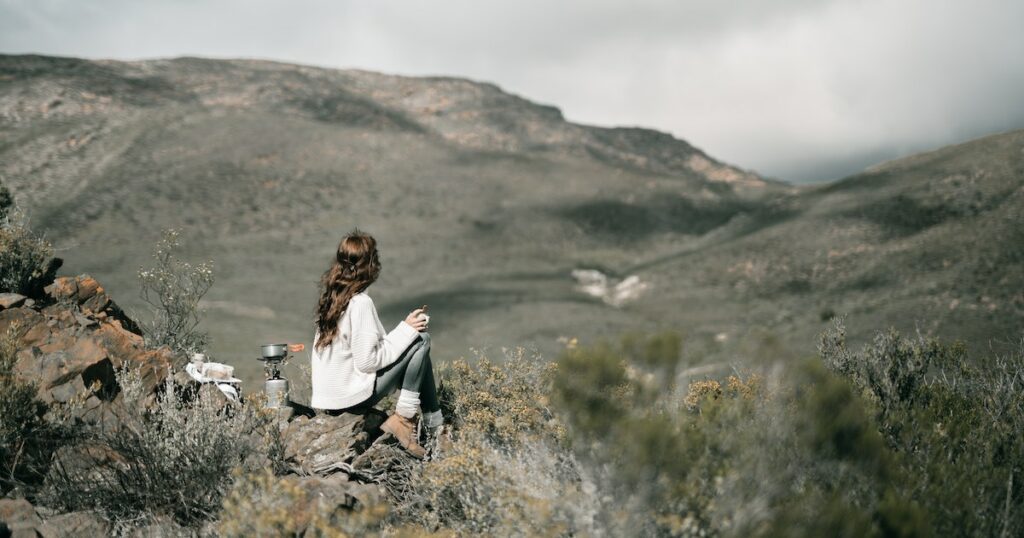
Planning Daily Mileage and Elevation Gain
To ensure a successful overnight backpacking trip, it’s crucial to plan your daily mileage and consider the elevation gain.
Here are some tips to help you with this important aspect of your adventure:
Determine realistic daily mileage
When planning your trip, take into account factors such as your fitness level, the difficulty of the terrain, and the available daylight hours.
It’s essential to be realistic about how many miles you can comfortably hike in a day. Pushing yourself too hard could lead to exhaustion or injuries.
Break down elevation gain
Elevation gain refers to the total amount of ascent during your hike. To make it more manageable.
Break it down into smaller segments throughout each day’s hike. This way, you won’t feel overwhelmed by a steep climb all at once.
Take regular breaks
While hiking, it’s important to take breaks regularly.
Not only does this give you a chance to rest and refuel, but it also allows you to appreciate the beautiful surroundings along the way.
Use these breaks as an opportunity to hydrate, eat snacks, and soak in the scenery.
Factor in extra time
Unexpected obstacles or scenic detours can add extra time to your hike. It’s always a good idea to factor in some buffer time when planning your daily mileage.
This ensures that you have enough time to deal with any unforeseen circumstances without feeling rushed.
By considering these factors and planning accordingly, you’ll be well-prepared for an enjoyable overnight backpacking experience!
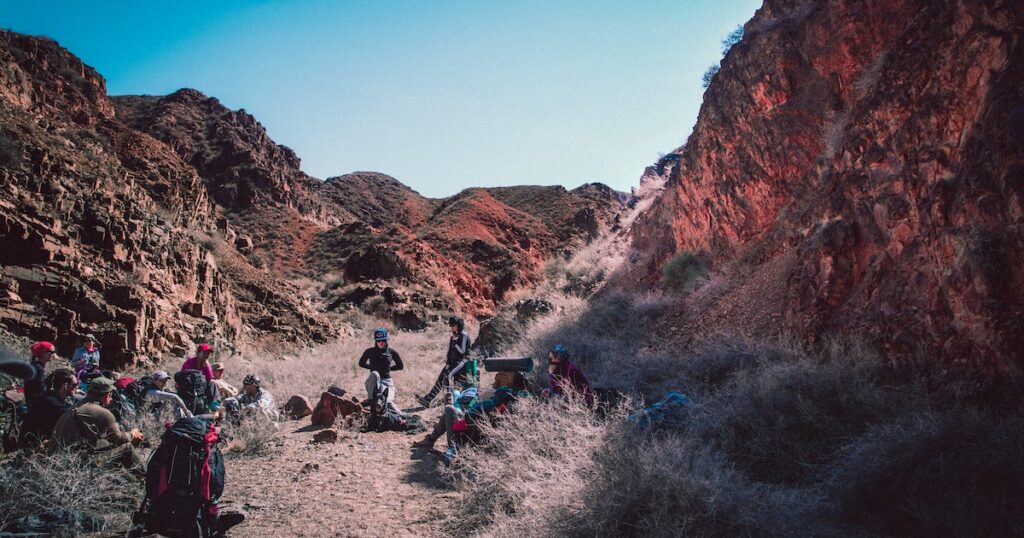
Essential Gear for Beginner Backpackers
To have a successful overnight backpacking trip, it’s important to pack the right gear. Here are some essential items that every beginner backpacker should consider:
Quality Backpack
Invest in a good-quality backpack that fits well and distributes weight evenly.
Look for one with adjustable straps and multiple compartments to keep your gear organized.
Sleeping Gear
A lightweight tent, sleeping bag, and sleeping pad are crucial for a comfortable night’s sleep. Choose a tent that is easy to set up and provides enough space for you and your gear.
Opt for a sleeping bag that is suitable for the weather conditions you’ll be facing, and don’t forget a sleeping pad to insulate you from the ground.
Cooking Equipment
Bring along a stove, cookware, and food storage options so you can prepare meals on the trail.
Look for lightweight cooking equipment that is easy to pack and clean. Consider using freeze-dried meals or dehydrated food to save weight and space in your backpack.
Safety Essentials
Don’t forget about safety! Pack a first aid kit with essential supplies like bandages, antiseptic wipes, and pain relievers.
A headlamp is also crucial for navigating in low-light conditions. And in case of an emergency, carry an emergency shelter such as a lightweight tarp or bivy sack.
Remember these essentials when packing your backpacking gear: hiking boots, rain jacket or poncho (depending on the weather forecast).
Extra socks (to keep your feet dry), toilet paper (you never know when nature calls), proof bags (to store trash), and boiling water (for cooking or purifying drinking water).
By having these essential items in your backpacking starter kit, you’ll be well-prepared for your overnight adventure!
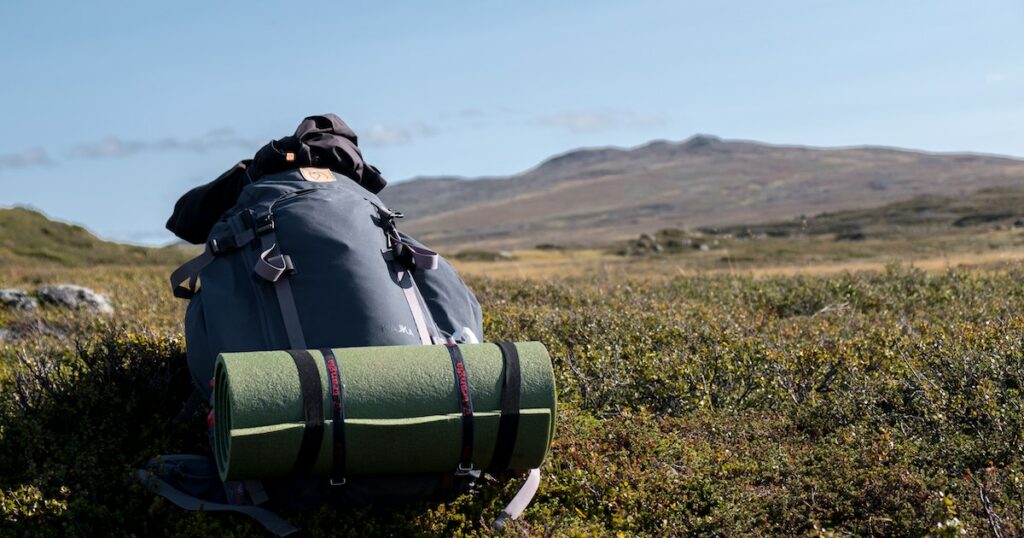
Building Fitness for Successful Backpacking
To embark on an overnight backpacking adventure, it’s important to prepare your body physically.
Building fitness will help you tackle the challenges that come with carrying a heavy backpack and traversing uneven terrain. Here are some tips to get started:
Start with Regular Cardio Exercises
Begin by incorporating regular cardio exercises into your routine. Activities like hiking or walking are excellent choices as they help build endurance and stamina.
Lace up those running shoes and hit the trails or take brisk walks around your neighborhood.
Strengthen Your Core Muscles
A strong core is essential for maintaining balance and stability while backpacking. Incorporate targeted exercises like planks or yoga poses that engage your abdominal muscles.
This will not only improve your posture but also reduce strain on your back during long hikes.
Gradually Increase Weight During Training Hikes
Simulate the conditions of backpacking by gradually increasing the weight you carry during training hikes.
Start with a lighter load and gradually add more weight to mimic the weight of a fully loaded backpack.
This will help condition your muscles and prepare them for the demands of overnight backpacking.
Focus on Flexibility Exercises
Flexibility is crucial in preventing injuries and enhancing overall mobility on the trail.
Incorporate stretching exercises before and after each workout session to improve flexibility in your joints and muscles.
Yoga can be particularly beneficial in improving flexibility while providing relaxation benefits.
Remember, building fitness takes time, so start slow and gradually increase intensity as you progress.
Don’t forget to listen to your body, rest when needed, stay hydrated, wear appropriate gear like hiking pants.
And ensure proper food storage and cooking methods during your adventures.
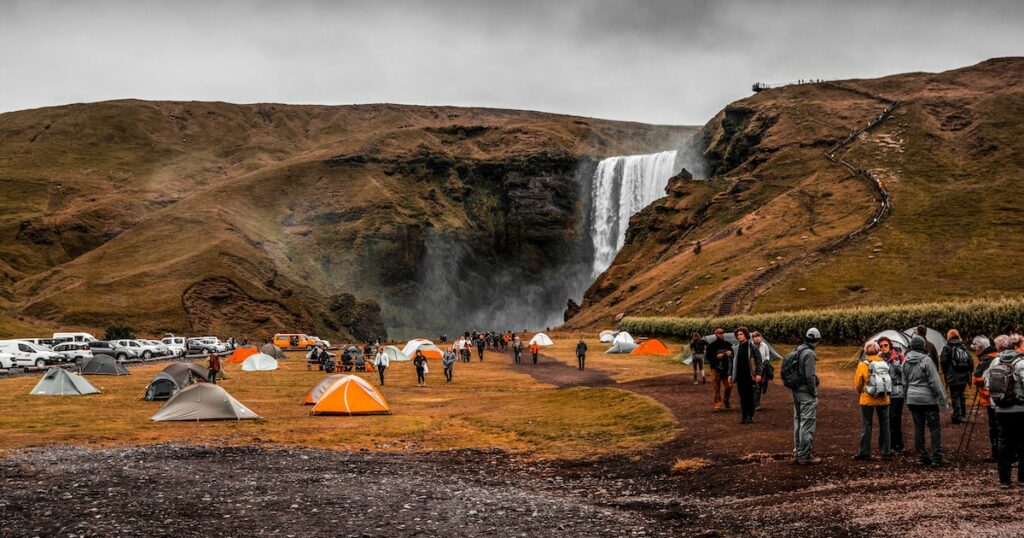
Embrace the Adventure of Backpacking
Leave your screens behind and immerse yourself in the beauty of nature on an overnight backpacking trip.
As a beginner, you have the opportunity to disconnect from technology and experience the solitude and serenity that only the great outdoors can offer.
Challenge Yourself Mentally and Physically
You’ll face obstacles along the way, such as steep inclines, rocky terrain, or unpredictable weather conditions.
But overcoming these challenges will give you a sense of accomplishment like no other.
Breathtaking Landscapes and Wildlife Encounters
One of the greatest rewards of backpacking is being able to witness breathtaking landscapes that are inaccessible by car or foot alone.
From towering mountains to serene lakes, each step on your journey unveils new natural wonders.
Moreover, backpacking allows for unique wildlife encounters that you won’t find in your everyday life.
Forge Lasting Memories with Like-minded Adventurers
Embarking on a backpacking trip can be a solo endeavor or an opportunity to bond with friends or fellow hikers who share your passion for adventure.
The shared experiences, laughter around campfires, and overcoming challenges together create lasting memories that strengthen relationships.
So why wait? Grab your backpack and hit the trails!
Experience the thrill of venturing into the wilderness, connect with nature on a deeper level, challenge yourself both mentally and physically.
Witness awe-inspiring landscapes, encounter fascinating wildlife, and build lifelong bonds with fellow adventurers.
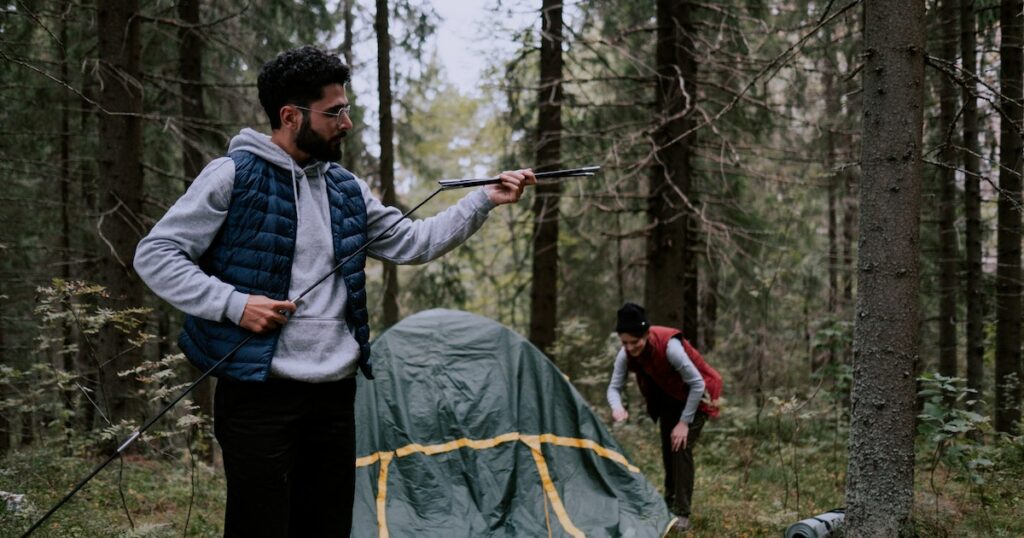
Conclusion
In conclusion, overnight backpacking is an exciting adventure that beginners can easily embark on.
By following the important tips for beginner backpackers, choosing an easy backpacking destination.
Avoiding rookie mistakes, planning daily mileage and elevation gain, and having essential gear, beginners can have a successful and enjoyable experience.
It’s crucial to build fitness before setting out on a backpacking trip to ensure physical readiness.
Embrace the adventure of backpacking and explore the beauty of nature while challenging yourself.
If you’re new to overnight backpacking, don’t let inexperience hold you back.
Start with shorter trips and gradually increase the duration as you gain confidence and skills. Remember to research your destination thoroughly, pack wisely, and always prioritize safety.
With dedication and proper preparation, overnight backpacking can become a lifelong passion that allows you to connect with nature in a unique way.
FAQs
1. What should I pack for an overnight backpacking trip?
When packing for an overnight backpacking trip, it’s important to prioritize lightweight yet essential items. Some key items include a tent or shelter system, sleeping bag and pad, cooking equipment, food and water supplies, clothing suitable for various weather conditions, navigation tools such as maps or GPS devices.
2. How do I choose the right backpack size?
Choosing the right size of backpack is crucial for comfort during your trip. Consider factors like torso length (measured from base of neck to top of hips), hip size (around your waist at its widest point), capacity needs (based on trip duration).
3. Are there any safety precautions I should take while hiking alone?
Hiking alone requires additional safety precautions. Inform someone about your itinerary and expected return time, carry a personal locator beacon or satellite communicator, familiarize yourself with the trail and weather conditions.
4. How can I prevent blisters while backpacking?
To prevent blisters while backpacking, it’s important to wear properly fitting boots or shoes that provide good support. Break them in before your trip to reduce the risk of friction.
5. What are some beginner-friendly overnight backpacking destinations?
There are several beginner-friendly overnight backpacking destinations around the world. Some popular options include Yosemite National Park (California), Olympic National Park (Washington), Isle Royale National Park (Michigan), Appalachian Trail (Eastern United States).

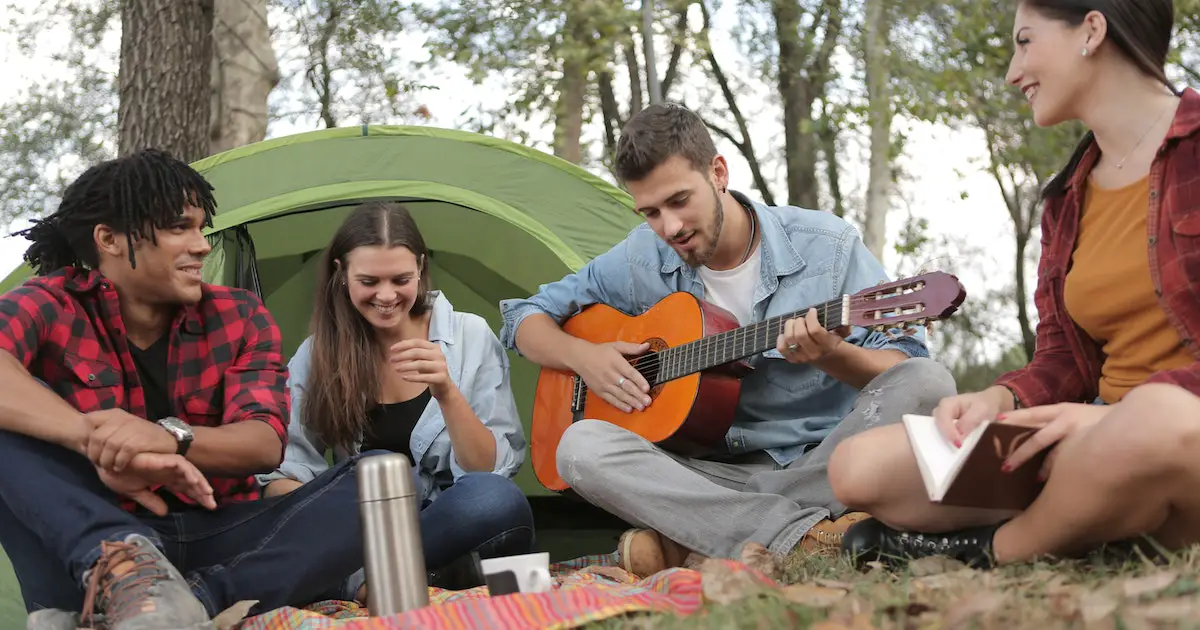

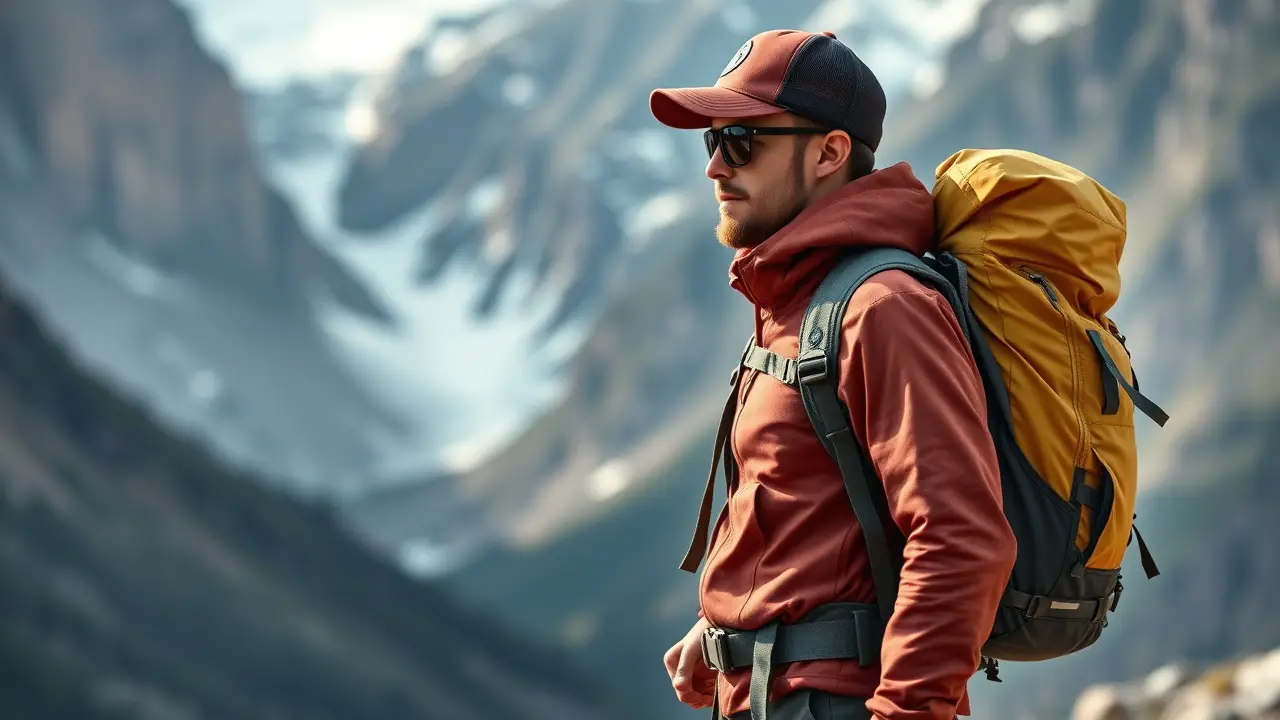
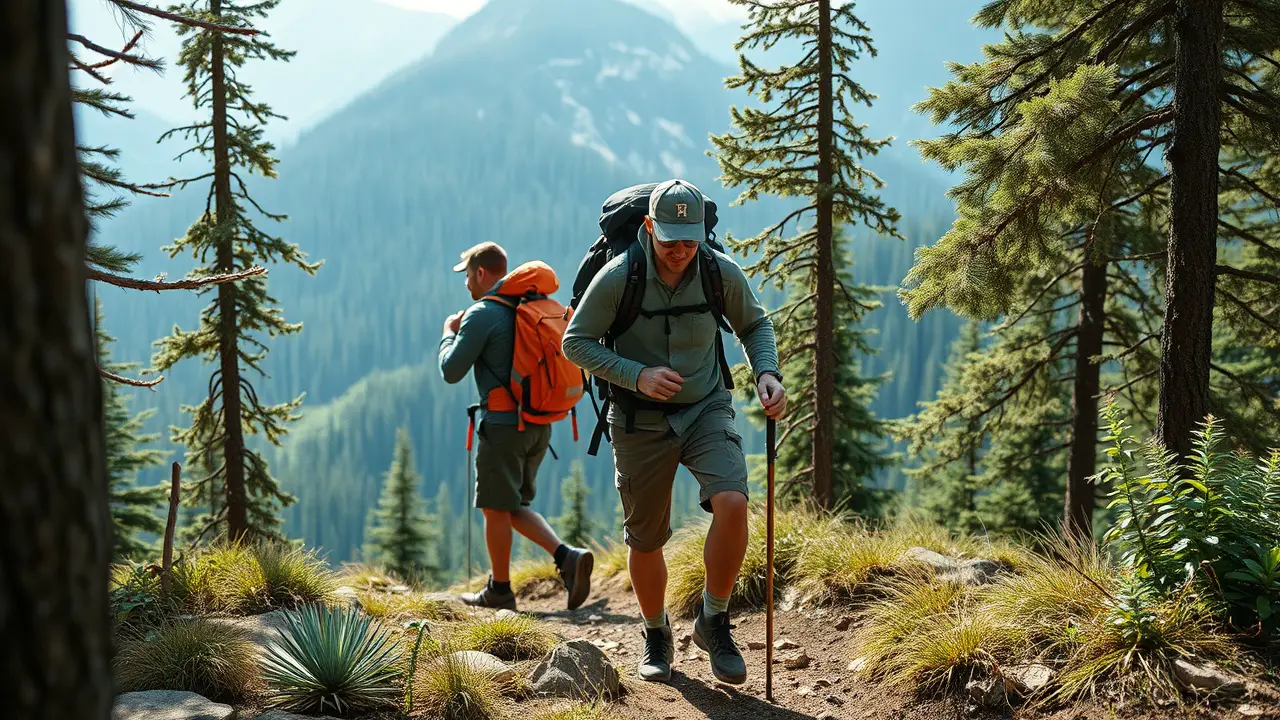
Leave a Reply